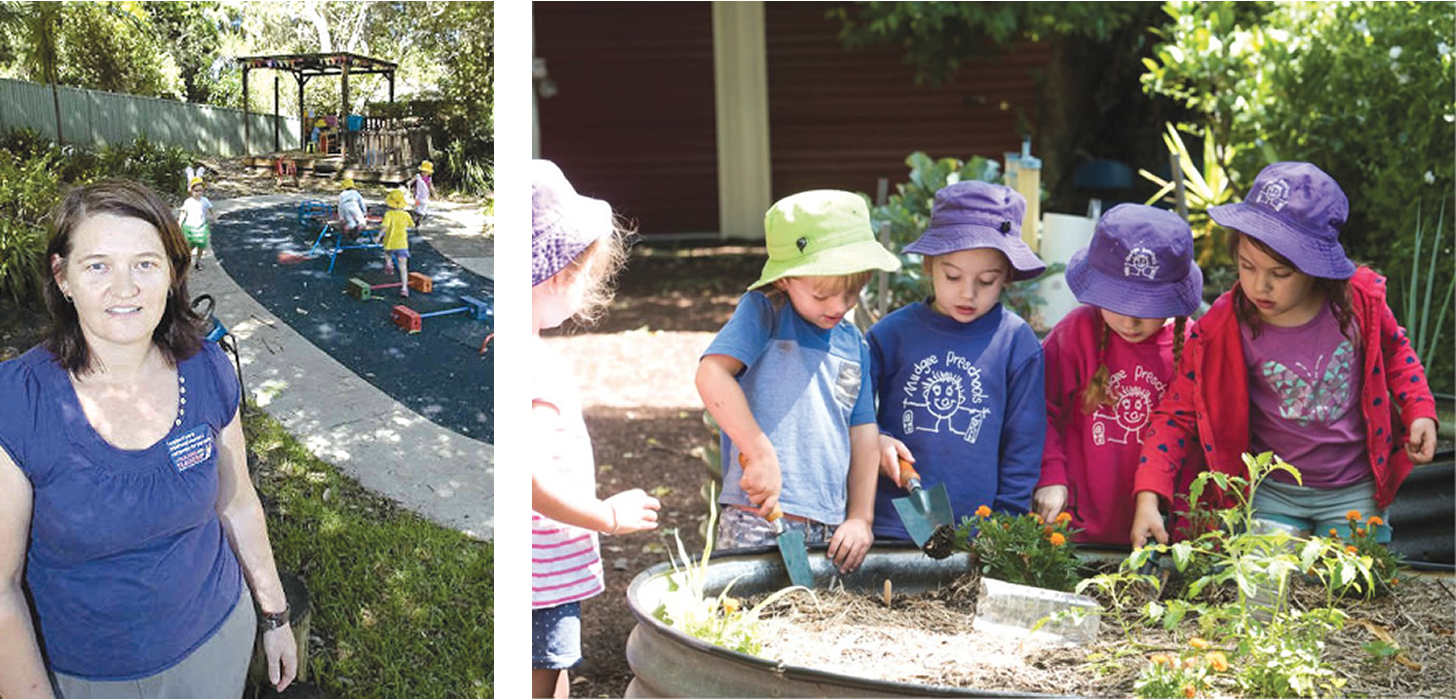Rosemary Gibbs is Director of Mudgee Preschool, also a regional town in NSW, but her centre will actually be better off under the model, and able to offer reduced fees to families in 2017.
She agreed the timing of the funding announcement in October was not good, as enrolment for 2017 had already been organised.
In order to fulfil the funding requirements the preschool has increased its enrolment hours, and this will provide a challenge to teachers.
Less release time from teaching may reduce time for programing, planning, meetings and documentation.
“This will particularly impact on children with a disability and additional needs,” Rosemary said.
“One of the adjustments the preschool has made is to increase the hours that professional cleaners work at the preschool to take some of the burden of maintaining the centre off the staff.”
Rosemary said the funding would increase the viability of the centre.
Sustainable Communities funding will see Clunes Preschool through to 2018, but after that the future is uncertain.
Melinda said: “We’ve been marketing heavily to families from a lot farther away than we would really like. We just can’t manufacture more four year olds from our area. In fact we have an ageing population in this area with less children likely to be coming up in the next few years”.
“But the fact is people can go to a preschool 20kms away and pay lower fees. The SEIFA ratings vary a lot.
“The Department has told us it’s an operational matter and we just have to enrol more children. But the reality is that may not be possible.”
Kate Washington, Shadow Minister for Early Childhood Education, met with the IEU’s Early Childhood Sector Council late last year to hear their views on this issue.
“Regional preschools, and the communities they serve, are being hurt the most under the new funding model. For those sitting just above the funding safety net, their ongoing viability is a challenge. In a small town, it’s hard to adjust your enrolments when you’ve enrolled every three and four year old in sight.
“It is clear that the government’s ‘one size fits all’ approach is all stick and no carrot, which sees some preschools fighting for survival instead of being supported. Many people are frustrated by the focus on ticking boxes instead of what’s in the best interests of children.
“Once again, regional and rural NSW appears to be bearing the brunt of an ill conceived funding policy, further deepening the equity gap between the city and country.
“I’m keenly aware of the importance of having three year olds in the preschool system. Academics, teachers and parents are in agreement on this issue.
“To do so, we will need a new funding approach from the Federal Government, something Kate Ellis MP, Federal Shadow Minister for Education and Early Childhood, has flagged in her recent National Press Club address.
“Other feedback I hear loud and clear, is the undervaluing of teachers and workers in the sector. Quite simply, pay inequality is something which must be addressed.
“I am committed to working towards a fairer system which supports all preschools, a system which is child focused, while meeting the needs of parents, teachers, workers and communities.
“In any funding model, we must ensure that services do not lose their ability to meet the needs of the communities they support.
“The NSW Opposition has set a goal of delivering 15 hours a week of quality, affordable early childhood education in the year before school. This is a benchmark many states have already met.
“Regrettably, NSW is tying itself up in unnecessary complexity, and losing focus on the end goal.
“For me, it’s quite simple. We must recognise the importance of early education, we must value it appropriately and we must support early education services and professionals to do what they do best – make a real difference to young people’s lives and, in turn, make our community stronger.”



































































































































